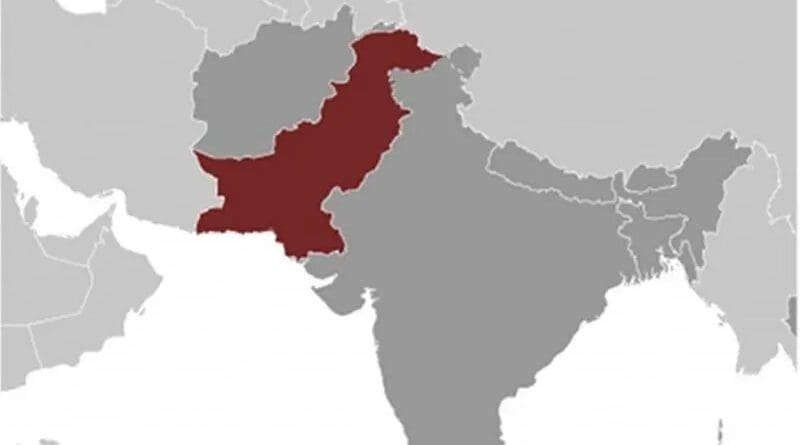Pakistan: Banking For Terror In Karachi – Analysis
By SATP
By Tushar Ranjan Mohanty
On July 27, 2012, a local ‘commander’ of the banned Tehreek-e-Taliban Pakistan (TTP), identified as Umer Khattab, was shot dead in a Police encounter in the Manghopir Police Station area in Karachi, the provincial capital of Sindh. Khattab was wanted by the Police in more than 25 cases of target killings as well as a number of bank robberies in the West District area of Karachi to generate funds for the TTP.
Khattab’s elimination is a major success for the city Police. 3,129 lives have been lost to target killings since January 2010 (data till August 26, 2012), and Khattab was a significant player in this bloody business. Crucially, Khatab was connected with a wider campaign of bank robberies in Karachi, engineered by the TTP to secure finances for their terrorist operations.
Terrorist formations were involved in at least 28 bank robberies in Karachi between 2009 and 2011. In 2011, TTP cadres robbed banks of about PKR 500 million, according to an internal report of the Karachi Police obtained by Central Asia Online. That total included Karachi’s biggest bank robbery of that year, a heist of more than PKR 90 million, from a Muslim Commercial Bank (MCB) branch at Jodia Bazaar in the jurisdiction of the Kharadar Police Station on April 12, 2012. Khurram Bari, Superintendent of Police (SP) of Special Interrogation Unit (SIU), which interrogates suspects linked to terrorism or terror-financing cases, disclosed, on May 12, 2012, “Several activists of TTP … have confessed to police that they have committed bank robberies to provide money to the organisation.”
According to official data, nine bank robberies have been recorded in Karachi between January and June 15, 2012. A June 19, 2012, media report noted that over PKR 33.55 million had been looted in these robberies, the biggest among which was committed on April 24, 2012, in which PKR 9.5 million was looted from a private bank situated at Tipu Sultan Road in the Gulshan-e-Iqbal Township. In the most recent incidents, two back to back bank robberies were reported on June 14 and June 15, 2012, in which the robbers looted PKR 2.35 million from a private bank located in Gulberg Block No. 10 and PKR 4.5 million from a bank situated in the Nazimabad area, both in Karachi.
Police arrested 42 TTP activists in 2010 and 2011 in connection with various robberies, and recovered PKR 110 million, as well as a range of weapons, from the suspects.
Karachi-based security expert Raees Ahmed stating that TTP extremists rob banks to raise money for the group’s terrorist activities, noted, in December 2011, that the group was “facing a severe financial crisis and a shortage of funds in wake of the measures taken by Pakistani authorities to cut off their main source of income abroad, especially from Gulf States.” Interrogation of some of the arrested robbers disclosed associations with the TTP and Lashkar-e-Jhangvi (LeJ), and Ahmed noted, further, “Their involvement in organised crime had increased recently, following a Government ban on jihadi groups and the seizure of their bank accounts.”
Meanwhile, SP SIU Shahjahan claimed, on June 19, 2012, that it was impossible for the Police Department to provide proper security to all bank branches of the city, due to extreme paucity of personnel and resources. Shahjahan added, “We suggested to all bank managements to establish at least one bunker outside its branches for security purpose, but they do not take the suggestion seriously.”
Significantly, Karachi, with a population of 18 million, has only 31,861 Policemen, yielding a meagre 177 Policemen per 100,000 people, an abysmal ratio for a major urban concentration, particularly the financial capital of the country, with overwhelming problems of security. Indeed, the overall Police population ratio for Sindh stands at a substantially higher 263 per 100,000. The Police population ratio for Lahore, to take an urban comparison, is 343/100,000.
The shortage of Police personnel in Karachi has resulted in increasing reliance on private security agencies, the benefits are dubious. Major (Retd) Munir Ahmed, a leader of the All Pakistan Security Agencies Association (APSAA), notes, “Karachi alone has more than 250 security companies with about 45,000 to 50,000 guards.” Bank authorities, among others who are hiring private security guards, do so without any significant verification of backgrounds, opening the door for terrorists and criminals to infiltrate the security structure. The Government is now reported to be working on ways to monitor the hiring process in private security agencies to ensure that they do not give jobs to criminals and extremists.
While Karachi is currently among the worst affected cities, an August 23, 2012, confidential report of the National Crisis Management Cell of the Ministry of the Interior, claimed that the TTP was planning more terrorist activities in the country’s major cities – including Islamabad, Lahore and Multan in Punjab and Peshawar and Bannu in Khyber Pakhtunkhwa – which included bank robberies to generate funds. TTP ‘commander’ Qari Shafiullah Moavia has assigned the task to Nauman Moavia, who has been authorised to rob banks and jewellery shops and to execute abductions in order to raise funds for the purchase of transport, arms and ammunition.
With the pressure on direct terrorist financing increasing, even as the operational capacities of the terrorist groups augment, alternative efforts for fundraising to support the terrorist infrastructure, including robberies, abductions, extortion and other organized criminal activities, can only widen. The country’s financial capital, with its already degraded security environment, is a natural target for an escalating campaign of terrorist fundraising. Given the current capacities for Policing, and the visible disinclination on the part of the political establishment to radically augment these in the foreseeable future, Karachi can only expect much worse to come.
Tushar Ranjan Mohanty
Research Associate, Institute for Conflict Management

